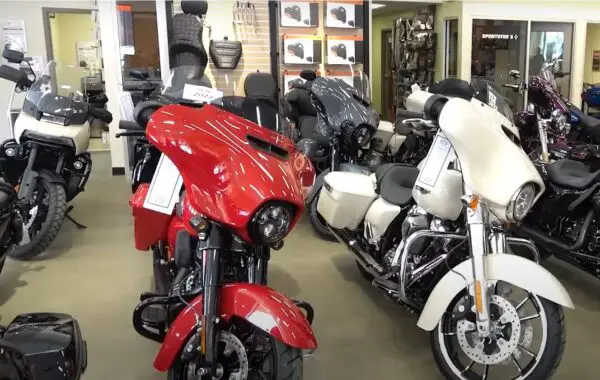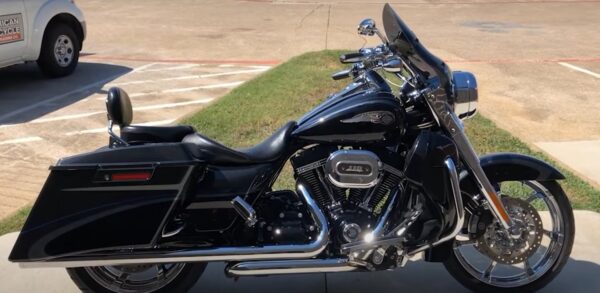Harley Davidson battery and aftermarket options both offer unique advantages to motorcycle enthusiasts.
In this article, we’ll explore:
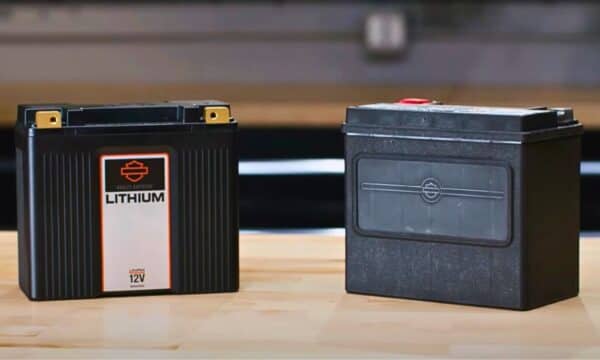
- Harley’s original batteries
- Aftermarket batteries
- Performance & Variety
- Environmental impact
Whether you value the reliability of an original manufacturer’s battery or are enticed by the potentially superior features of aftermarket alternatives.
Let’s dive in!
Harley Davidson’s Original Batteries
When it comes to the topic of “Harley Davidson battery vs Aftermarket,” it is important to highlight the unique features of Harley Davidson’s original batteries.
These batteries are manufactured by Deka, a trusted brand known for their quality and reliability.
Harley Davidson’s original batteries are believed to be exclusively made by Deka, ensuring that they meet the highest standards of craftsmanship and performance.
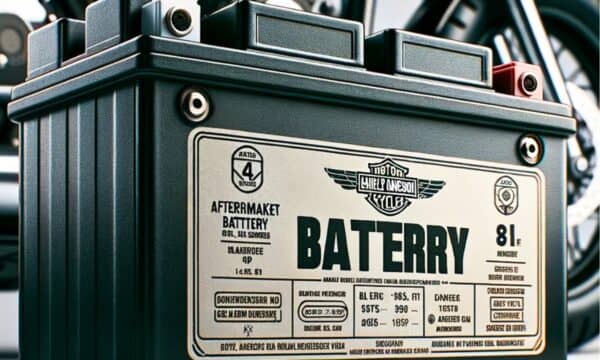
Harley doesn’t compromise on the quality of their batteries. They prioritize using top-notch materials and advanced technology, which is reflected in their pricing.
This emphasis on quality suggests that there is a reason why these batteries are priced as they are.
One notable aspect of Harley Davidson’s batteries is their historical reputation for longevity.
Over the years, Harley has built a strong track record of producing batteries that have a long lifespan and provide you with reliable power for extended periods.
Using original batteries, you can have confidence in the quality, reliability, and extended lifespan of your battery.
Aftermarket Batteries For Harley Davidson
These aftermarket batteries offer a variety of options to suit different needs and preferences.
You can choose from different types of aftermarket batteries, such as Lithium or AGM, depending on your requirements.
One of the key advantages of aftermarket batteries is their cost. Generally, they are less expensive compared to original Harley Davidson batteries.
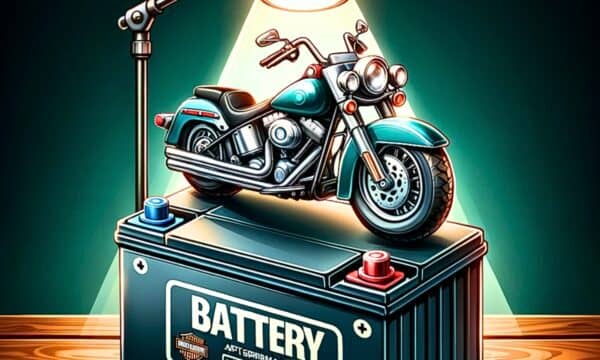
This affordability makes aftermarket batteries a popular choice among motorcycle enthusiasts.
Aftermarket batteries have been known to perform exceptionally well in comparison to their original counterparts.
They offer reliable power and longevity, ensuring a smooth and efficient performance for your Harley motorcycle.
Overall, aftermarket batteries for Harley Davidson motorcycles provide a cost-effective alternative to original batteries without compromising on performance.
Comparative Analysis Of Harley Battery & Aftermarket
Performance
The Harley batteries are renowned for their longevity, providing reliable power for extended periods.
They are engineered to withstand harsh conditions and heavy loads, ensuring you can ride with confidence.
On the other hand, aftermarket batteries offer their own set of advantages. Many riders find them to be more cost-effective without a significant compromise on performance.
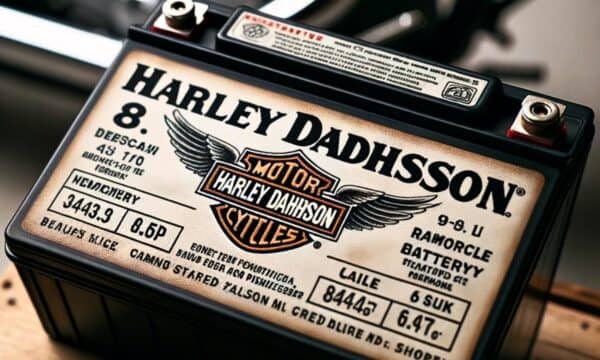
Aftermarket batteries can provide comparable power, with some brands even matching the lifespan of Harley’s own.
However, performance can vary widely among aftermarket brands, which makes it crucial for you to do your research before making a choice.
Compatibility
When it comes to compatibility, both Harley and aftermarket batteries demonstrate divergent characteristics.
Harley batteries, specifically designed for Harley motorcycles, ensure a perfect fit and optimal performance.
These batteries are engineered to comply with the unique specifications of Harley motorcycles.
On the other hand, aftermarket batteries offer a broader compatibility range. They are made to fit various motorcycle models beyond just Harley.
While there may be some variance in the fitting and performance on non-Harley, aftermarket batteries present an agreeable alternative if you’re seeking flexibility in your options.
Installation
When comparing the installation processes of the Harley battery and aftermarket batteries, there are a few key points to consider.
The Harley Davidson’s battery is designed specifically for Harley motorcycles and often slots in seamlessly, requiring no modifications to your bike.
On the other hand, aftermarket batteries may necessitate certain adjustments.
While these batteries can offer cost savings and a variety of performance options, they are not tailored for specific Harley models.
So, you’ll need to make some minor modifications to ensure a perfect fit and optimal functioning.
Warranty
Harley batteries come with a full one-year warranty, and they guarantee the battery’s performance for an entire year from the purchase date.
Suppose you detect any defect or issue during this period. In that case, the company will replace or repair the battery at no cost.
Harley also provides exceptional customer support during this warranty period, ready to answer questions and solve problems.
On the other hand, aftermarket batteries’ warranty periods may vary, and their customer support services might not be as comprehensive.
Environmental Impact
Sustainability
Harley batteries, being manufacturer-specific, are designed to fit precisely into the motorcycle’s structure, maximizing performance and minimizing waste.
They are usually composed of high-quality materials designed to last longer, thus reducing the frequency of replacement and environmental impact.
On the other hand, aftermarket batteries often come at a lower cost but may not have the same lifespan or performance, leading to more frequent replacements.
This frequent replacement cycle potentially results in a higher environmental impact due to increased waste and energy for production.
Disposal
It’s crucial to remember that these batteries contain dangerous materials and should not be thrown away with regular household waste.
For proper disposal, the best option is to take the old battery to a recycling facility.
These facilities provide safely handle and dispose of batteries and ensure that harmful substances do not end up in our environment.
In some cases, auto parts stores or battery retailers might even provide a disposal service for used batteries.
Conclusion
Both Harley Davidson and aftermarket batteries have their merits. Suppose you’re seeking a battery that perfectly fits your Harley Davidson bike and preserves its warranty. In that case, the Harley Davidson battery is the ideal choice.
On the other hand, if you’re on a budget and value a wider variety of options, aftermarket batteries offer a viable alternative.
However, you should carefully evaluate factors such as price, performance, and durability when choosing between the two.
FAQs
How often should I replace my Harley battery?
A Harley battery typically lasts between 3 to 5 years with proper maintenance. However, if you notice any issues like your motorcycle struggling to start, it’s best to have the battery checked.
Are aftermarket batteries safe for all Harley Davidson?
Aftermarket batteries can be safe for all Harley Davidson motorcycles if they meet the manufacturer’s recommended specifications.
However, it’s essential to purchase from a reputable seller to ensure quality and reliability.
What is the average lifespan of an aftermarket battery?
The average lifespan of an aftermarket battery is typically around 3 to 5 years. However, this can vary based on the battery’s quality, usage, and maintenance.
Which battery is used in Harley Davidson?
The Harley Davidson motorcycles typically use a 12-volt lead-acid battery.
Does it matter what motorcycle battery you use?
Yes, it does matter what motorcycle battery you use because the proper battery ensures optimal performance.
Using an incorrect battery can lead to problems like poor engine start, reduced power, and even potential damage to the motorcycle’s electrical system.
You may like to read!
Harley Davidson Battery Size Chart

Ahtsham Younas is a passionate blogger and content writer. He loves to ride motorcycles and learn the mechanical process behind the motorcycles.
He has been writing articles in the motorcycle industry since 2019 and has learned many things about motorbike niches.

